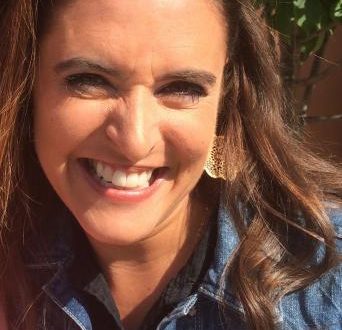Heritage Indestructable
Omara Khan Massoudi’s story rivals James Bond for international intrigue and espionage. Roger Atwood, author of Stealing History, in the June, 2008 issue of National Geographic recounts Massoudi’s efforts to keep the national treasures of his country safe through perilous times. The article describes Massoudi’s passion and commitment as Director of the National Museum of Afghanistan to rebuild the heritage of his people by preserving the artifacts of his country’s past.
Omara Khan Massoudi’s story rivals James Bond for international intrigue and espionage. Roger Atwood, author of Stealing History, in the June, 2008 issue of National Geographic recounts Massoudi’s efforts to keep the national treasures of his country safe through perilous times. The article describes Massoudi’s passion and commitment as Director of the National Museum of Afghanistan to rebuild the heritage of his people by preserving the artifacts of his country’s past.
Heritage, as defined by Webster, is: “something transmitted by or acquired from a predecessor – legacy, tradition, inheritance; that which comes or belongs to one by reason of birth.”
What does it mean to “rebuild the heritage” of a people? Is heritage found only in material artifacts? How has your heritage influenced your story? Consider the when, where, why, and to whom you were born and the resulting economic status, ethnicity, values, traditions, skills, pleasures and ways of functioning as important factors in your story. In charting the hand of God in your story, particular events and relationships have contributed to your heritage and influenced who you are today.
Your heritage may contain elements that you would write off as mundane, commonplace, uneventful, or insignificant, but, upon reflection, you may discover experiences and relationships of great significance. It may be represented by something tangible: grandmother’s Bible, father’s track medal, great-grandmother’s teaching certificate, your grandfather’s sermon notes in German, a baby shoe or a cross from a prince in Europe given as a wedding gift. A second look at these may yield profound insights- not wealth in material possessions, but in character qualities that were modeled- hard work, persevering through loss of health, a spouse and even loss of children.
The validity of memorials was evidenced when the Hebrew children in their journey placed memorial stones to honor covenants and significant events. Thomas Moore’s words in Care of the Soul confirm the significance of artifacts in personal story and history as soul care.
With the recent devastation in the Gulf coast states caused by hurricane Ike, many people have lost visible expressions of their heritage- photographs, family heirlooms, “ national treasures.” Does losing the material representation erase the imprint of heritage on one’s soul and inner person? How can loss create opportunity to “rebuild heritage”?
In I Peter, Peter, about to lose his life, spoke of a living hope- of “an inheritance which is imperishable and undefiled and will not fade away, reserved in heaven for you” – heritage indestructable – undaunted by hurricanes and not needing protection of a Director Massoudi.



One Comment
Sharifa Stevens
I love the idea of a
I love the idea of a continuing legacy, tradition, and ritual. These rites can include everything from the way I hang the toilet paper or dispense toothpaste, to the way I worship, greet elders, and teach my children. Heritage rules! Literally.
This past Sunday, my husband was installed as an associate pastor in his church. During our lunch celebration, my mother-in-law showed us a very precious heirloom; a copy of the Book of Romans, pocket-sized, written in the 1830s. It was passed downfor three generations.
This heirloom speaks of a heritage of faithfulness to Jesus. I was awe-struck by this symbol of generational faith.
And even if my family, or the families of many other believers, don’t mirror my husband’s heritage, all Christians have a cloud of witnesses, a blessed heritage of faith, a common thread in being regarded as the people of God.
And that heritage rules. Forever.